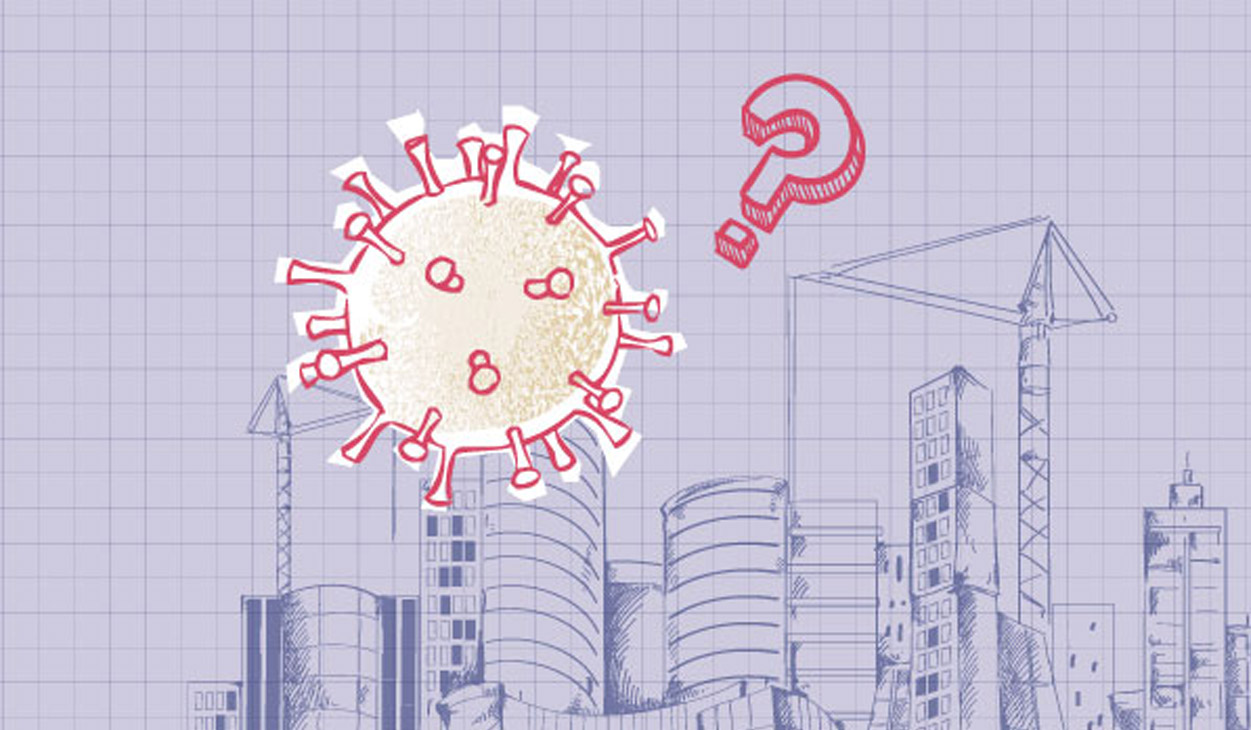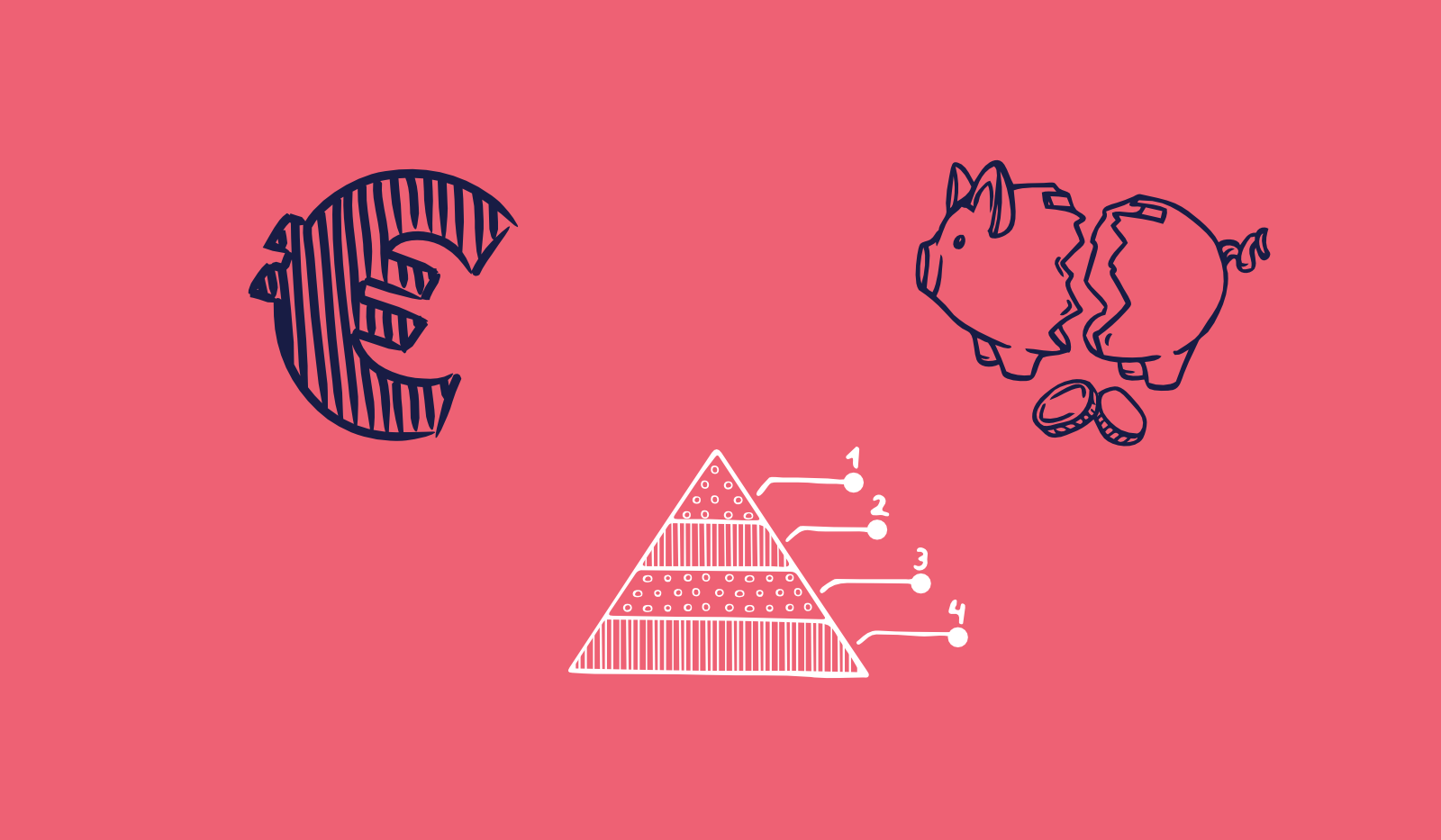
Preface
After Corona we will rebuild our societies. Here we explain how these 14 ideas build towards democratising central banking, a capable state and a resilient society.
Corona was not an unpredictable crisis. Experts have warned of global pandemics for years. And yet, our competitive, flexible, and internationally-integrated economies proved unprepared and brittle in the face of the disease. Like a sudden storm, it revealed the many cracks and crises that had accumulated in our social fabric.
In light of this, a “back to before” is unacceptable. Climate change is on the horizon, its early impacts are here. Blacks swans can happen at any time. Foundations of trust and legitimacy, undermined by persistent and grave injustices, have been eroded down to dangerous levels in many societies. After Corona, change is necessary.
The purpose of this project is to envision and discuss proposals for this change: proposals that go beyond crisis fighting and conventional recovery measures; that target the underlying fragilities laid bare by the crisis; and that are specific enough to provide a foundation for productive public discussion. Given the expertise and experience of this group, this translated into an ambitious economic policy agenda, focused in particular on fiscal and monetary policy in Europe, but mindful that this is only a part of a larger, global agenda.
Three broad thrusts structure this agenda. First, a set of proposals for democratising central banking. Corona has reiterated one of the central lessons of 2008: central banks have become the cockpits of our economies. They underpin states’ financial capacities and backstop both finance and production. Their influence is pervasive in moments of crisis as well as in normal times. But while their capacity to act swiftly and decisively is a core component of economic resilience, in democratic societies this amount of power cannot be left unaccountable. To ensure the lasting legitimacy of, and trust in, our central banks, the first set of proposals therefore outlines options for strengthening democratic oversight and accountability, while preserving operational independence.
Second, a set of proposals centering on the idea of a capable state. Corona has shown that the details of state administrative capacities matter: what states cannot see or cannot count, they struggle to act on, both during a crisis and in normal times. This set of proposals therefore seeks to update and augment state capacity, both to ensure that responses to future crises can be swift, effective, and fair, and to ensure that our states are able and trusted to govern in line with our democratically expressed will.
A third set of proposals revolves around the idea of a resilient society. It is illusory to think that all future shocks and crises can be averted. In addition to striving to prevent future crises, we must therefore strengthen our capacities to face, absorb, and rebound from those that strike us. This means systematically reducing leverage in our financial system; ensuring that all households have strong enough incomes to accumulate reserves; reducing market- and import-dependence for the production, stockpiling, and distribution of essential goods and services; and creating an economy that builds rather than corrodes trust and legitimacy.
One overarching theme connects all proposals: the desire to outline, briefly but concretely, a macro-financial architecture that shifts fiscal and monetary power from technocratic and private financial actors to public and democratically legitimized ones. Institutionally centred on the idea of fiscal-monetary cooperation, this vision is guided by resilience, not merely efficiency; oriented towards sustainability, not short-term maximisation; and seeks to deepen and extend democracy without sacrificing prosperity. But these proposals can only be the beginning of a wider discussion. To face the time after Corona with confidence, we will need to reorient and integrate our thinking on nature and society, on justice, trust and legitimacy, on economics, politics, and state administration. We hope this collection contributes to that task.
About AfterCorona
AfterCorona was launched by Dezernat Zukunft as a forum for thinking about long term, strategic challenges and opportunities in the context of the Corona crisis, particularly in the areas of fiscal, monetary, and economic policy. Starting in April 2020, around thirty thinkers from inside and outside academia met in four digital workshops to identify impasses and develop proposals to address them. The results are collected on this website.
Due to the collaborative nature of the process, this document is a collective endeavour, signed in the name of all participants. Each participant agrees with the broad thrust of this collection, but this should not be taken as agreement with every individual proposal.
The purpose of this document is to serve as a prompt for discussion and we hope that it will be read in this spirit. Following this publication, AfterCorona will continue into a second phase. This will centre on further discussing these proposals and elaborating a subset into full policy papers. We appreciate feedback and welcome suggestions: if you are interested in participating or following this process, please get in touch.
You may be interested in:
The thinkers making this project happen are:
- Andrea Binder, Free University Berlin
- Benjamin Braun, Max Planck Institute for the Study of Societies and Institute for Advanced Study (IAS)
- Florence Dafe, Bavarian School of Public Policy, TU Munich
- Leah Downey, Harvard University
- Stefan Eich, Georgetown University
- Nina Eichacker, University of Rhode Island
- Isabelle Ferreras, Belgian National Science Foundation (F.N.R.S., Brussels) and UC Louvain
- Daniela Gabor, UWE Bristol
- Jakob Hafele, ZOE. Institute for future-fit economies, Johannes Kepler University Linz
- Philipp Heimberger, Vienna Institute for International Economic Studies (wiiw)
- Lisa Herzog, University of Groningen
- Elena Hofferberth, University of Leeds and Wissenschaftliche Arbeitsgruppe Nachhaltiges Geld
- Ewa Karwowski, University of Hertfordshire
- Max Krahé, Dezernat Zukunft and Royal Academy of Belgium
- Christina Laskaridis, School of Oriental and African Studies, University of London
- Martyna Linartas, Free University Berlin
- Anne Löscher, Universität Siegen and Wissenschaftliche Arbeitsgruppe Nachhaltiges Geld
- Nicholas Mulder, Cornell University
- Steffen Murau, Boston University
- Natalya Naqvi, London School of Economics
- Theresa Neef, Free University Berlin and World Inequality Lab
- Ann Pettifor, Prime Economics
- Tobias Pforr, University of Reading
- Katharina Pistor, Columbia Law School, Columbia University
- Mathis Richtmann, Dezernat Zukunft
- Elham Saeidinezhad, University of California, Los Angeles (UCLA)
- Pola Schneemelcher
- Philippa Sigl-Glöckner, Dezernat Zukunft
- Lea Steininger, Institute for International Economics, Vienna
- Jens van ‘t Klooster, University of Amsterdam and KU Leuven
- Katy Wiese, European Environmental Bureau
- Lea Ypi, London School of Economics
Hat dir der Artikel gefallen?
Teile unsere Inhalte



